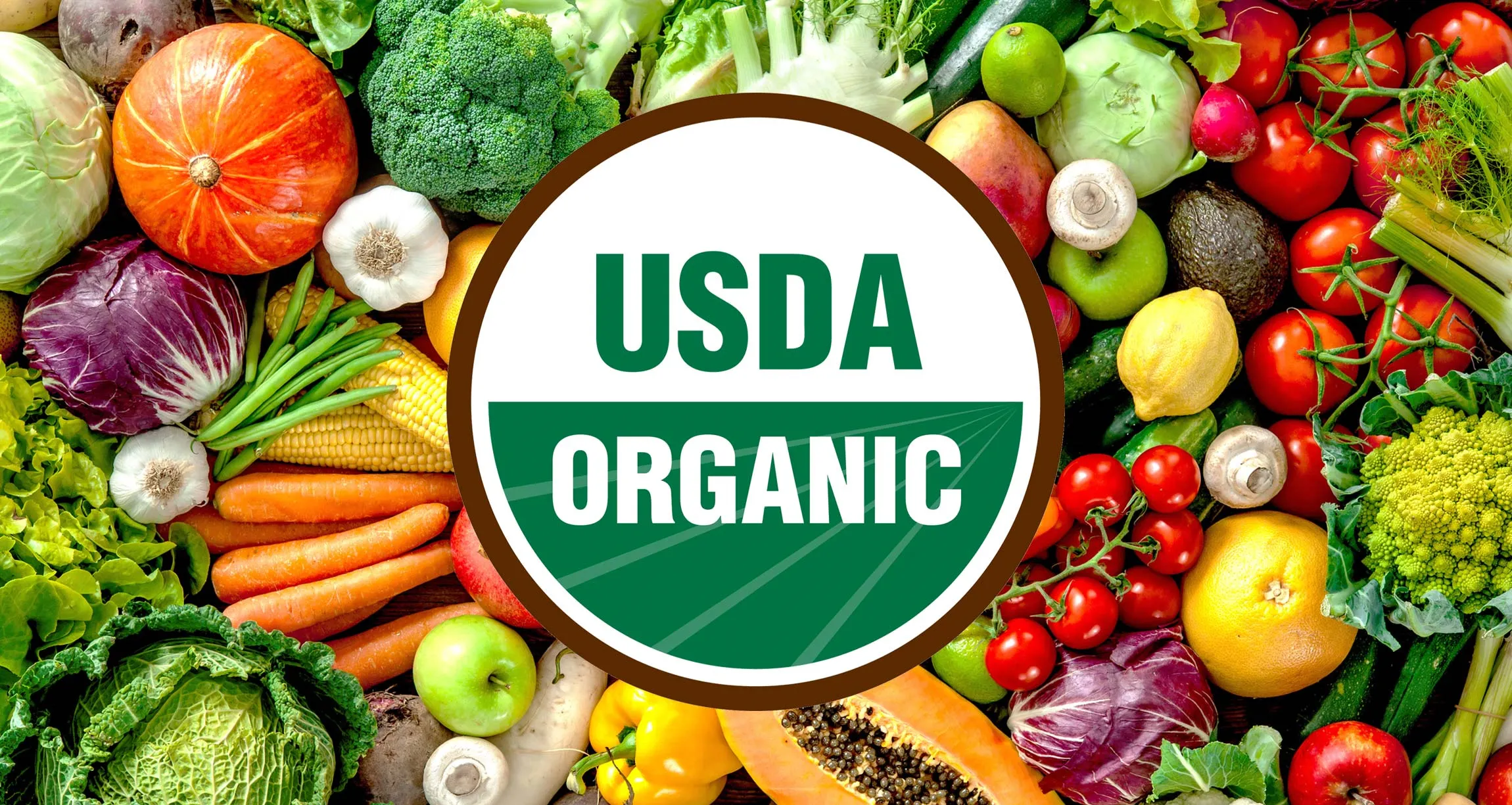Can Organic Food Really Help Lower Cancer Risk?

We all know that organic food is better for our health—but are there more benefits to eating it aside from being “clean” food? Well, according to research published by Institut National de la Sante et de la Recherche Medicale going organic can help reduce a person’s cancer risk by 25%. This finding couldn’t have come at a more relevant time, as more then 90% of the U.S. population alone has been shown to harbor detectable traces of pesticide in both their urine and blood.
A good majority of that comes in the food we eat. If you think that having fruits every single day is great for your health, you might begin thinking twice about it once you learn that in eating those you’re also consuming pesticides. So now that we all know this as fact, what happens next? The priority, of course, is for big companies that make use of these pesticides to start being transparent with their practices. There are some who can easily hide behind an “organic” label, but still continue to do unhealthy practices behind the scenes.
There’s no questioning the fact that pesticides are bad for our health. But, with that said, what exactly makes a food organic? Is it simply the lack of chemical pesticides? Should we be considering more factors? For a food to be truly considered organic, its production should not use any of the following:
– Synthetic fertilizers
– Chemical pesticides
– Ionizing radiation
– Sewage sludge
– Bioengineering or GMOs
For any product to earn an official organic label, it should be approved by a government-appointed certifier who will inspect the farm itself and its processes. There are certain rules set in place by the Department of Agriculture which organic farms should adhere to in order for them to receive the official label. These standards should be followed—for example, organic farming means only making use of compost and manure as natural fertilizers. Other set standards, include:
– Natural pest control
– Companion planting or intercropping
– Crop rotation
After all that has been said and done, however, will it really affect our health for the better? Research shows that merely making the switch to organic foods can produce a significant reduction in pesticide metabolites found in our urine. But that’s not all—consider that pesticides are also carcinogenic. The less we are exposed to it, the lower our risks of developing the disease.
What You Need to Know About Organic Food
– Organic food is grown in a more traditional manner, using natural fertilizers so you can be sure that there are no artificial chemicals coating or getting absorbed into the food you eat. This is especially so for produce such as vegetables, fruits, and so on. However, it can also be applied to other food items such as dairy, eggs, and meat. All of which can be treated with chemicals and hormones too boost yield and increase size—but doing so endangers our health in turn. Just imagine ingesting these things on a regular basis; even in small amounts, it will produce side effects.
– Can you trust everything food labels? Sadly, no. Marketing can be very misleading. In fact, even products labeled as “All Natural” guarantees nothing. Needless to say, it pays to be a mindful consumer. You have to do some research and ask questions—get all the information you need before deciding on a brand. Sure, organic food tends to be a bit more expensive, but its benefits do outweigh the price.
– When it comes to nutritional content, it is worth mentioning that organic food also tends to be superior—containing greater amounts of antioxidants which is beneficial for our bodies. If you’re looking for the good in food, going organic is sure to deliver. Note that it also has lower levels of cadmium, a harmful heavy metal that can be found in our produce.
– Organic food isn’t just better for our bodies and health, they are also beneficial when it comes to the environment in general. How? This is due to the fact that organic farms do not produce the same pollution as other commercial farms do. They do not poison the soil and any nearby bodies of water with various toxic chemicals from pesticides. Know that these chemicals find their way into our produce and may even seep into the groundwater furthering possible health issues.
– Have you heard of the dirty dozen? These are non-organic foods that are especially high in pesticide content—the ones that get treated with chemicals the most. Needless to say, if you can only purchase a few organic foods at a time, you should prioritize these ones.
The Dirty Dozen
This is a list of foods put out every year by the Environmental Working Group, highlighting the importance of buying these organic whenever possible. The food items included in this list were ranked according to the amount of pesticide residue found during tests.
– Apples (including apple sauce and apple juice)
– Strawberries (40 different pesticides have been found on these, the number is lower on frozen varieties)
– Grapes (like strawberries, these are almost always on the list)
– Celery (over 60 different pesticide residues have been found on it)
– Peaches (over 60 different pesticide residues have been found on it)
– Spinach (canned varieties have fewer residues)
– Sweet Bell Peppers (about 50 different types of pesticides)
– Nectarines (the number is higher on imported ones)
– Cucumbers (a whopping 86 different types of pesticides)
– Cherry tomatoes (experts suggests growing your own)
– Potatoes (over 30 different pesticides)
– Collard greens (over 45 different pesticides)
– Lettuce (more than 50 different pesticides)
*Note that this list does change annually.
In Closing:
While there is more human data needed, there is significant evidence pointing to organic food’s benefits when it comes to aiding in cancer prevention. Through this study, we have also been made more aware of the different factors that contribute to an individual’s overall cancer risk. Factors such as diet, lifestyle, physical activity, and body weight are all known contributors and should be monitored in the same way as we do the food we consume every day.
We’ve also highlighted the fact that organic food isn’t as easily accessible—that they tend to be more expensive compared to commercially produced products and that this is the leading reason as to why some people have yet to make the switch. For this, the recommendation is to go organic selectively and to prioritize the “dirty dozen” foods that are known to be laden with harmful chemicals. Avoiding these already come with benefits.
Another important thing to remember is to not eliminate the nutrient-rich food groups just because they are not organic. It also pays to be more mindful when it comes to the ingredients list of the things we purchase and to do ample research when it comes to produce that claims to be “organic” or “all-natural”. Being a more meticulous consumer might seem time-consuming, but note that you are doing this for your health and safety so every second you put into it is certainly worth it.
The Food We Eat and Cancer Prevention
A study published in JAMA Internal Medicine back in 2018 takes a closer look at the connection between regular consumption of organic food and cancer risks. 68,900 French adults participated in this study, averaging 44 years in age, with their dietary habits observed for a course of 5 years. During this period, they were tasked to report how often they opted for organic food options when it comes to fruits, dairy, vegetables, meat, eggs, fish, and vegetable oils. Along with the self-reports, researches also computed an organic food score to ascertain the person’s overall cancer risk.
So, what did this study conclude?
While 1,340 out of all the volunteers did end up developing cancers ranging from prostate, breast, colorectal, skin, and non-Hodgkin’s lymphomas among other types— switching to a higher intake of organic foods does help with lowering risks of cancer diagnosis. In this case, it was shown that over 73% of the participants experienced a much lower risk of non-Hodgkin’s lymphoma and 21% lower risk of developing postmenopausal breast cancer.
All of that is great and is certainly important knowledge considering the fact that people are becoming more mindful of what they put on their plates. However, there are also certain drawbacks to the study that needs to be addressed. Specifically, when it comes to differentiating what’s organic and what isn’t. There’s also the fact that not everyone has access to organic products; from price issues and problems when it comes to availability (not all sources are legitimate and not everyone will have access to farmer’s markets. Lastly, there also tends to be a lack of interest towards it—with people still believing that a small amount of pesticide in their food is inconsequential.
But this is false. According to the International Agency for Research on Cancer, the pesticides malathion, glyphosate, and diazinon can cause cancer in humans. These are all commonly used in agriculture, which also means that if you haven’t been eating organic then you have consumed these chemicals at some point. You probably still do.
